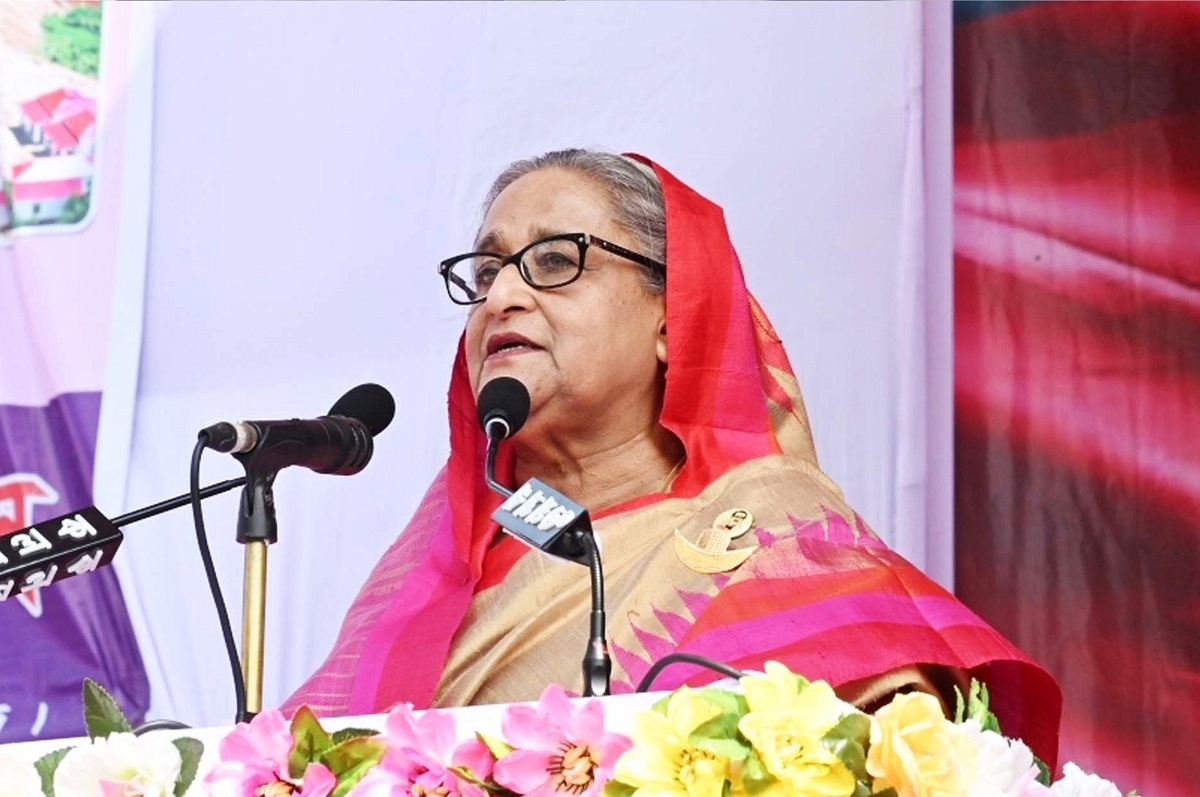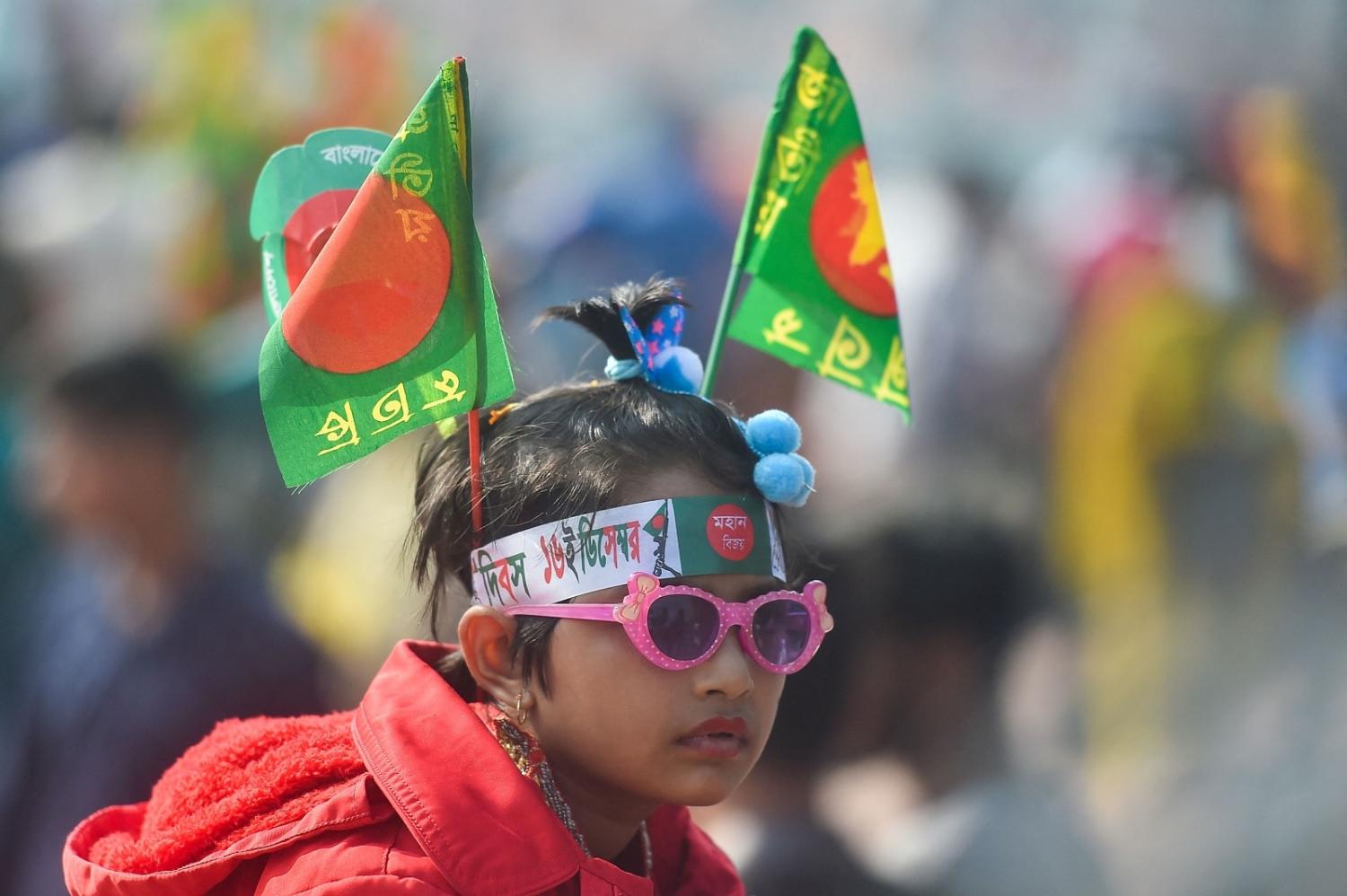Australia is in the process of enhancing partnerships in the Indian Ocean region, including with non-traditional partners such as Bangladesh. Australia has a significant stake in the prosperity and stability of Bangladesh as a secular state. It needs to forge its own path in developing this partnership, which may differ from Washington’s policies.
Bangladesh is an emerging middle power in the Indian Ocean region. It is a country of some 170 million people with a vibrant export-oriented economy that has experienced a compound annual GDP growth rate of 9.1% per annum over the last decade.
Although famously (and perhaps, apocryphally) described by Henry Kissinger as an international “basket case” when it gained independence in 1971, its GDP per capita and many social indicators (health, education and status of women) now surpass those of neighbouring India.
Bangladesh Prime Minister Sheikh Hasina has been the principal architect of the country’s economic success and relative political stability over the last 15 years. She has created the conditions for sustained growth based on manufactured exports. She has maintained and strengthened civilian control over the army while also keeping a lid on numerous domestic extremist groups (many of them associated with extremist groups in Pakistan). This has often involved strong-arm tactics through the police’s paramilitary Rapid Action Battalion.
Bangladesh remains a democracy, although like many of its South Asian neighbours, a highly flawed one. It is fair to say that the Hasina government is not shy of using the power of incumbency to ensure its re-election.
The current administration under Hasina was elected in 2008, taking over from the previous military administration. She was returned to power in subsequent elections in 2013 and 2018, with the latter boycotted by major opposition parties.
Bangladesh’s commitment to democracy will again be tested as it heads to elections in January 2024. With the leader of the main opposition party, Khaleda Zia, under house arrest on corruption charges, the opposition is divided and undecided on whether (and how) to fully participate. There is an undeniable groundswell of resentment against the government, including due to corruption among the ruling party’s appointees, so Sheikh Hasina’s re-election is no certainty.

A big challenge for Hasina in coming months will be how to bring opposition parties into the electoral process so as to give credibility to the elections while not allowing the elections (and potentially the country) to spiral into violence and chaos. If mishandled, there is a risk that extremist groups could gain power or at least a significant share of power, placing Bangladesh’s secular system and economic prosperity in doubt.
Bangladesh is also feeling squeezed between the major powers, particularly India and China. India provides considerable political and security support to the Hasina government, despite widespread sensitivities about it acting as a “Big Brother”. Delhi is worried about China’s “encroachments” in Bangladesh, which are seen as illegitimate.
For its part, China supplies much of Bangladesh’s military equipment and courts Bangladesh with offers of major infrastructure projects (and associated indebtedness). It is seen by many as a somewhat distant and useful friend, and relatively unthreatening.
Bangladesh also feels squeezed by Washington, which has placed the Hasina government in the political deep freeze due to questionable electoral practices. Successive US presidents since Obama have refused to meet with Hasina. In 2023, Bangladesh was pointedly uninvited to the US-sponsored “Summit for Democracy”, which brought together some 80 countries, some with highly questionable democratic credentials (including the likes of Mauritania, Iraq and Tanzania).
This approach has only alienated the Hasina government and pushed it towards Beijing. For many observers in Dhaka, Washington’s hostility contrasts with its relationship with other countries in the region whose democratic record is far more problematic. In Pakistan, for example, there are credible reports that Washington green-lit the ouster of Imran Khan’s elected government in 2022 and has subsequently refused to criticise the army’s crackdown against Khan’s party (rumoured to be a quid pro quo for Pakistan military assistance to Ukraine). Only this month, US President Joe Biden visited communist-ruled Vietnam where he and Prime Minister Pham Minh Chinh announced a “comprehensive strategic partnership”.
It is not clear what Washington hopes to achieve in isolating Bangladesh. It is certainly at odds with the approach of like-minded partners such as India, Japan (which elevated relations to a “strategic partnership” in April 2023), the United Kingdom and France (President Emmanuel Macron visited Dhaka this month). They are all seeking to bolster Bangladesh and provide it with more options for political and economic partnerships to reduce its reliance on China.
Australia has important interests at play in Bangladesh. The 2023 Defence Strategic Review identified the northeastern Indian Ocean as being within Australia’s primary area of military interest, along with the Pacific and maritime Southeast Asia. Indeed, the Australian government is now stepping up its political, security and economic engagement with Bangladesh.
Bangladesh is an island of economic prosperity and relative order in an unstable neighbourhood. Nearby Myanmar is in the throes of a multi-faceted civil conflict that seems set to continue without end. Sri Lanka is returning to stability after a “people power” revolution in 2022. Even India’s northeast states, which border Bangladesh, have been wracked with civil unrest in recent months.
A stable and prosperous Bangladesh is an essential element for a stable northeast Indian Ocean. Conversely, an unstable Bangladesh, or one where religious fundamentalist groups have gained significant power, would likely have significant knock-on effects right around the region.
Australia has in the past taken a different position from Washington on Bangladesh, such as when it was one of the first countries in the world to recognise Bangladesh’s independence in January 1972. That is appreciated in Dhaka. It is again time for Australia to be on the front foot in working in partnership with Bangladesh to maintain its position as a force for regional prosperity and stability.

